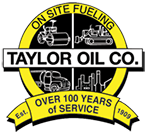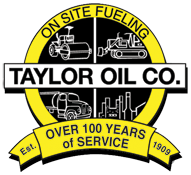Gasoline and diesel are the top two types of generator fuels. Both are readily available, dependable, and provide on-demand power. They also both generate low emissions. But that being said, gasoline and diesel generators have many differences, which make each one better for different applications.
Whether for a prime or standby generator, here are some differences between the two and why diesel generators may be better for your power needs.
1. Fuel Efficiency
Diesel generators are more efficient than gasoline because they do not burn as much fuel to produce power. They also have a high compression rate, which means they take less fuel to run. If you’re going for cost efficiency, this is a great reason to choose diesel. And if you own a business, a diesel-powered generator will lower your operating costs and boost your bottom line.
2. Safety
Diesel is less flammable than gasoline, which makes it the safer option. A diesel generator is particularly good if your business deals with chemicals and combustible products, as it’s not as explosive as gas. Plus, it is less likely to accidentally ignite. And if you are thinking of storing your generator in a place where there are many heat sources around, go with diesel. It has a longer shelf life than its gas counterpart and you can store more fuel in case of emergency.
3. Maintenance and Lifespan
If you don’t want to hassle with a lot of maintenance, diesel generators are best. They don’t have spark plugs and carburetors, which both require regular maintenance and replacement. A generator that is low in maintenance saves you money, time, and effort. Diesel generators also have a longer lifespan, leading to a better ROI. Why? Diesel engines burn cooler and components don’t experience as much wear and tear.
4. Noise
This is one area where gasoline engines are better than diesel engines. They are quieter than diesel engines, which have high noise levels. If you are located close to other neighbors or other businesses, these loud sounds can be a nuisance. That being said, the latest advances in technology have led to quieter diesel engines as of late.
5. Applications and Usage
Gasoline generators are better for low-load applications and infrequent use, such as for a home owner who wants a backup in case the power goes out. Gas generators will produce less noise and fumes, plus they are less expensive to operate and come in a variety of models.
However, diesel generators are ideal for heavy-duty tasks that need a lot of power. A diesel engine is able to handle bigger loads for longer periods of time. Considered workhorses of the generator industry, diesel engines are best for heavy loads and applications, such as on a construction site.
Diesel generators also make for great standby generators in case of emergency. Most vehicles and equipment take gasoline, but in the event there is a regional emergency, there will be significant competition for this resource. But diesel is more readily available because it’s not used in as many vehicles or equipment.
6. Reliability
Diesel generators are extremely reliable. Not only are they less expensive to operate, they take less fuel, require little maintenance, and offer a longer lifespan. Also, they don’t require ignition systems, which equals fewer components to maintain and replace. Plus, they are able to function at lower temperatures, with minimal wear and tear.
While gasoline and diesel are excellent fuel options for generators, diesel generators are better for many reasons – from their cost efficiency and reliability to minimal maintenance and heavy use capacity.
Contact Taylor Oil
Here at Taylor Oil, we offer onsite and mobile fueling for both gasoline and diesel needs. We also offer diesel exhaust fluid (DEF). To learn more or to book service, contact us today.



